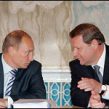
Opinion Poll Reveals the Impact of the Global Recession on Belarus
Publication: Eurasia Daily Monitor Volume: 6 Issue: 193
By:

A synopsis of the latest opinion poll (September 2009) conducted in Belarus by the Independent Institute of Social-Economic and Political Research has been published on the Institute’s website (www.iiseps.org). The Charter 97 website issued a press release, which maintained that given a choice, Belarusians would join the European Union, but decline to join the Russia-Belarus Union (RBU). It further declared that based on the poll, a majority of Belarusians now wish to replace Alyaksandr Lukashenka as president (www.charter97.org, October 5). This analysis, however, over-simplifies the issues and obfuscates the attitude of the Belarusian population to the consequences of the economic crisis and current bilateral relations with Russia.
The poll is significant as it is widely regarded as the most objective survey conducted in Belarus. Though registered in Vilnius, the Institute operates in Minsk under the leadership of Dr. Oleg Manayev (Aleh Manayeu). Its survey was based on 1,505 respondents and the margin of error does not exceed 3 percent. Unsurprisingly, most people were concerned by the impact of the recession: 37 percent considered that their material situation had worsened over the past three months, and 40 percent professed “fear and shock” over rising prices for various products as well as in such sectors as housing, medicine, and education. Concerning who should be held responsible for “the worsening economic situation in the country,” the targets were the following: the president (42.7 percent), government (40.7 percent), and local authorities (24.1 percent). However, almost a quarter of respondents laid the blame on “the West.”
Most respondents maintained that the Lukashenka regime has brought stability as well as a plurality to the country (37 percent) and believe that the level of corruption is less than that of the early 1990’s. Yet almost 40 percent thought that the gap between rich and poor had increased over the past 15 years and on a 10-point scale (where 1 constitutes full democracy and 10 a total dictatorship), the respondents ranked Belarus only at 6. And as noted on the Charter 97 website, in response to the question as to whether Lukashenka has performed well enough to stand for re-election or if an opportunity should be given to a new candidate, 50.2 percent opted for the latter. Does that mean that the Belarusian electorate today wants the removal of Lukashenka from power?
The answer is that for the moment, the president is quite secure. If he runs for a fourth term, according to the survey, 42.9 percent would support him against 25.2 percent for a candidate from the democratic opposition. More revealing, however, is the perennial question: if an election for the presidency of Belarus were to be held tomorrow, for whom would you vote? A sizeable 39.4 percent declared that they would vote for Lukashenka, only 3.4 percent for Alyaksandr Milinkevich, the leader of the Movement for Freedom, and 2 percent for Alyaksandr Kazulin, the former Rector of the Belarusian State University. All three were candidates in the disputed 2006 presidential elections.
Concerning external links, given a choice between association with Russia and accession to the E.U., 38.3 percent favor the former and 42.7 percent the latter. Given the 3 percent margin of error, the results are too close to call. Furthermore, 63.6 percent maintained that Russia had no choice but to take action against Georgia in August 2008 and almost 50 percent of respondents laid the blame on Georgia for that conflict. Over 63 percent considered Russia correct to recognize Abkhazia and South Ossetia as independent states, and 46.8 percent thought that Belarus should follow Russia’s example in recognizing these states. Around 80 percent of respondents did not consider Russia as a foreign country.
Such results make it difficult to discern exactly where Belarusians stand in the complex trilateral relationship with the E.U. and Russia. Also, while the recession is making life difficult, it has not yet had a critical impact on the population. In the first eight months of 2009, industrial output fell by 4.6 percent, and GDP dropped by around 1 percent. The biggest impact has been on the automobile industry, and particularly the export of heavy transport vehicles to Russia. Because of falling demand, the output of heavy vehicles –90 percent of which are manufactured at the Minsk automobile factory– has fallen by 55.3 percent over the first eight months of 2009 (Belorusy i Rynok, October 12-18).
Meeting with his Russian counterpart Vladimir Putin at Novo-Ogarevo on October 6, Belarusian Prime Minister Syarhey Sidorsky commented on the dramatic drop in trade between the two countries of over 40 percent from January to August. However, Putin remained confident that the level would gradually rise again (www.government.by, October 6). Only in one area does the situation appear to be critical, namely Belarus’ urgent need for foreign loans. While Russia is prepared to back further IMF aid to Belarus, it is unwilling to release the final $500,000 of a $2 billion loan agreed to last year, because it does not believe Belarus is financially stable enough to meet the conditions. A further $1 billion is therefore being sought from the IMF, which approved a $2.4 billion 15-month standby loan last January (RIA Novosti, October 5).
The poll reveals above all that the global recession has not had a major impact on Belarus. On the other hand, conditions are worsening and the government is quickly running out of options for further loans. Despite Charter 97’s optimism, Belarusians still feel closer to Russia than to Europe. Moreover, Belarusians have yet to embrace a credible opposition leader and prefer to stumble on under an anti-democratic administration until such an alternative appears.




